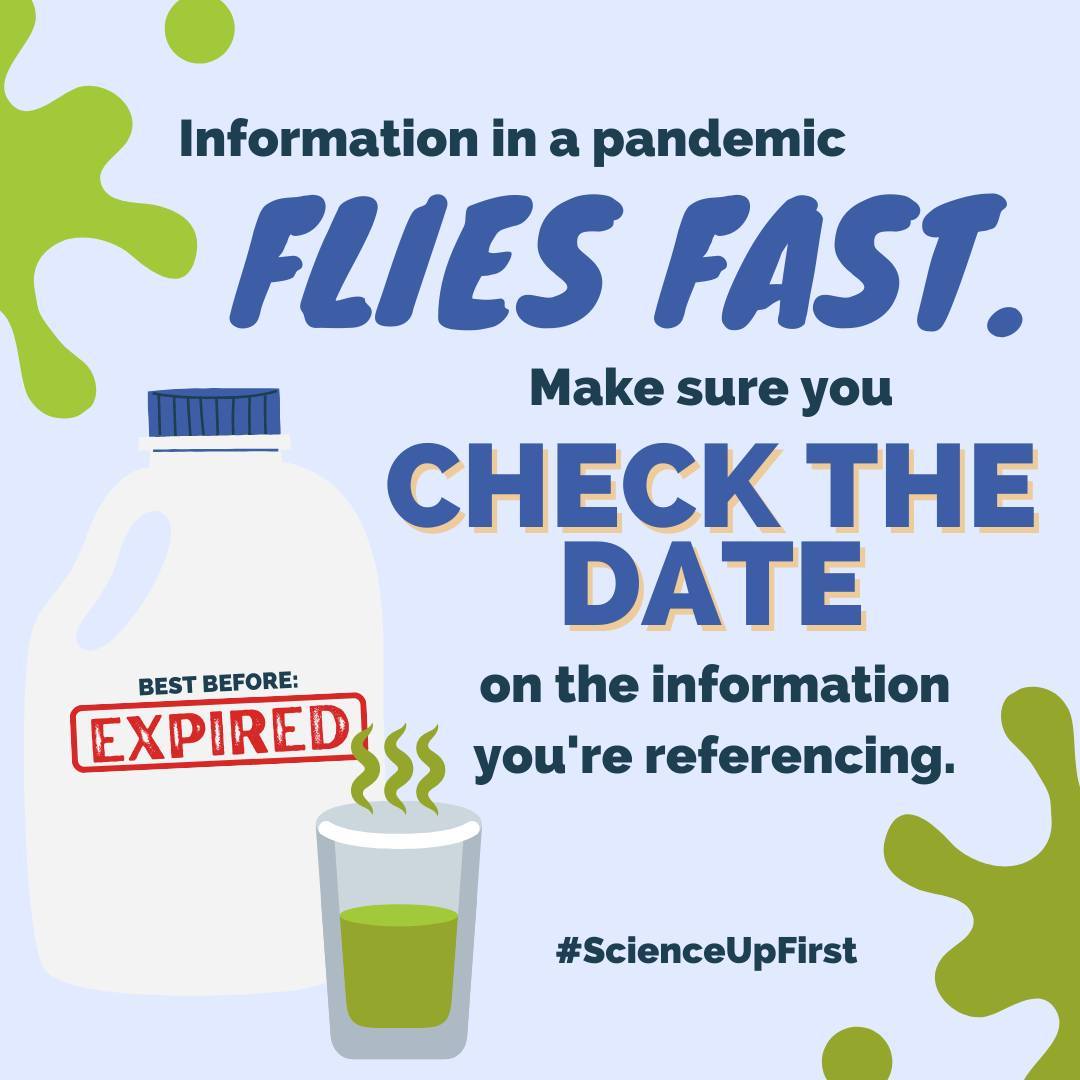Click on the sharing buttons to link to the post in your own tweet, Facebook post, email, or even WhatsApp message.
This post was vetted by experts, so you can be confident it’s accurate.

Does information go bad, like milk?
Yes! Here’s an example:
At the beginning of the pandemic we thought the virus could only spread via droplets (1). But now we know that much smaller particles, known as aerosols, can carry the virus too (2,3).
Like milk, there’s a reason some information goes bad or changes. The main reason is that our knowledge and understanding of the virus are also changing, or evolving (4,5).
@statcan_eng found that most Canadians will look for other sources or will read the full article to confirm the information they found online is correct. But only 29% will check when the article was published (6). 📅
This can be a problem because misinformers sometimes use old information as proof to fit their narrative, even though our understanding of the subject has deepened over time (4,7).
So yes, dates are important, especially in the always changing COVID-19 world, and there is nothing wrong with changing your tune if it is supported by evidence!
Before you share any piece of information, always make sure to check if newer information is available.
Share this with your friends to make sure they share only the most up-to-date information!
Sources : https://tinyurl.com/SUFCheckDates
Share our original Tweet!
Does information go bad, like milk? 🤢
— ScienceUpFirst | LaScienced'Abord (@ScienceUpFirst) May 31, 2022
Yes!
Keep reading to learn why you should always check the dates.#ScienceUpFirst
🧵[1/6] pic.twitter.com/VMiXGO7KOR
View our original Instagram Post!
